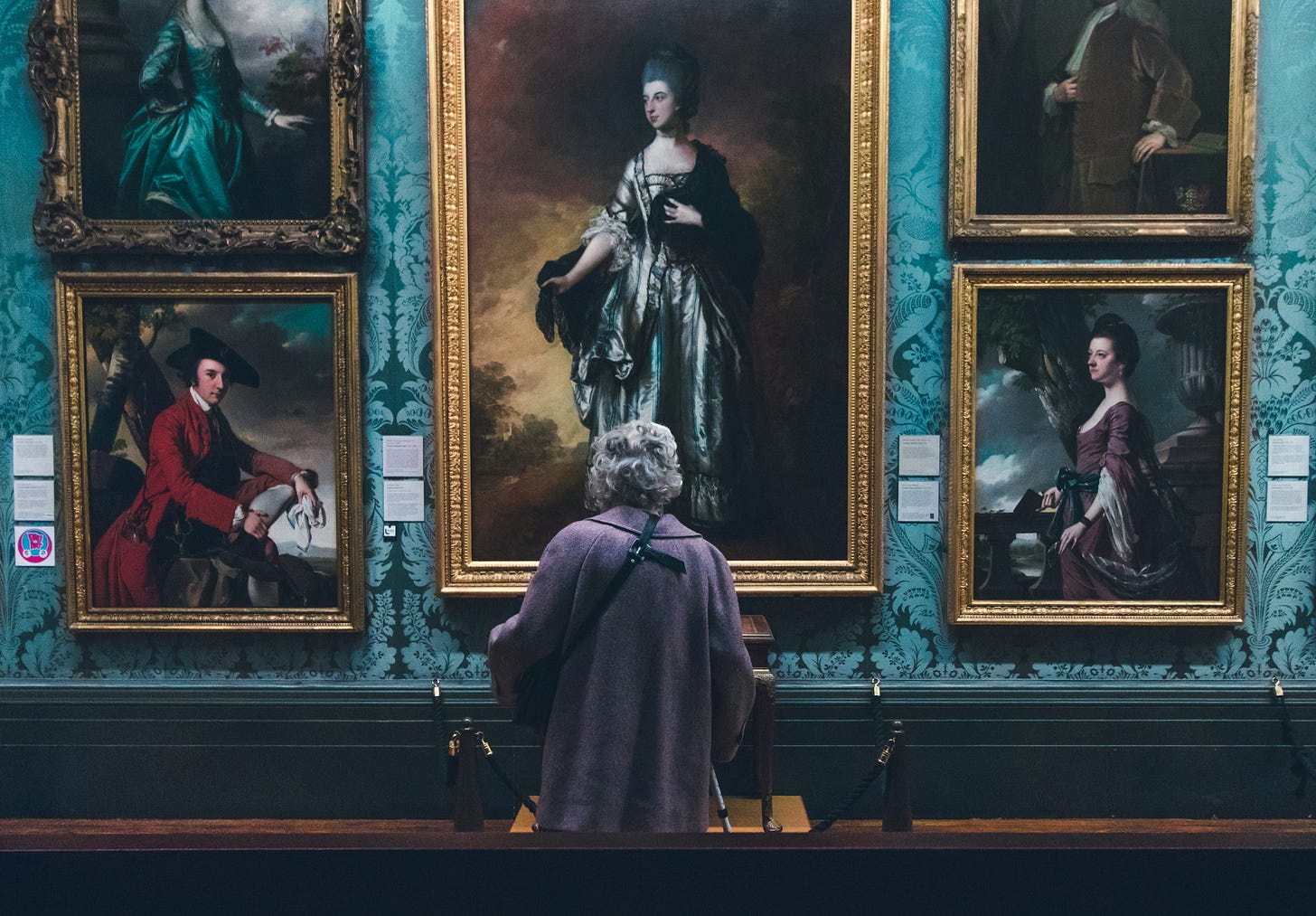How To Be The 1%
What does it take to be in the 1%? I've lived it, lost it, and clawed my way back. This is my story.
My family's blue blood flows from Vietnam's longest-ruling dynasty. My great-grandfather, the country's first ophthalmologist, was shortlisted for South Vietnam's presidency. He declined, choosing instead to run the South's largest hospital. My other great-grandfather's wartime exploits even inspired a TV show.
Our wealth once matched our status. My great-grandfathers' houses stood in the heart of the city, neighbors to the United Nations office, embassies, and luxury hotels. My grandmother recalls each of her dozen siblings having a jewelry box filled with gold.
But war spares no one. By my birth, our old money had evaporated. We remained the 1%, but only in name and respect, not in wealth.
When Vietnam's economy opened, my parents seized the opportunity. They worked tirelessly to rebuild. Their efforts afforded me a privileged upbringing in a country still struggling to its feet. We weren't old money anymore—we were the new 1%.
Our fortunes shifted again with our move to Canada. Suddenly, we had no money. I went from the 1% to the 99% overnight.
What most people don't realize is that simply living in a first-world country puts you in the top 1% globally. It's a privilege we often take for granted.
Over the past decade, I've worked my way back to the 1%. This experience taught me a crucial lesson: with physical and mental health intact, I could rebuild wealth in any first-world country within a decade. Here's what I've learned:
1. Unlearn
You can’t become the 1% if you think like the 99%.
The 1% often use education and media to control the 99%. The fewer questions people ask, the easier it is to control them.
My mother taught me to listen with two ears. "Let things come in one and go out the other," she'd say. "Don't believe everything you hear. DON'T TRUST ANYONE."
Always ask questions. Even when you agree with something, try to see it from another perspective. If you disagree, do the same. Don't just listen—think critically.
It's challenging, extremely so. You'll encounter messages tailored for the 99% and need to decipher their true meaning. You don't want to believe what the 1% want you to believe.
2. Never Stop Learning
The 1% knows the importance of knowledge. Used correctly, it's the most powerful weapon.
2.1 Read A Lot
My parents were frugal, but there was one thing I could have in abundance: BOOKS.
The three most important documents a free society gives are a birth certificate, a passport, and a library card. - E. L. Doctorow
By age 10, I was reading my parents' history, philosophy, war strategy, and business books. Everyone around us read a lot, and we picked up the habit naturally.
Poor people read for pleasure. Rich people read for self-improvement.
Don't just read for fun. Read to acquire new knowledge. Always ask questions and consider what you can learn from each book.
Don't just collect knowledge like baseball cards. Find ways to turn it into action.
2.2 Observe
Observing others is the best way to learn. Pay attention to how people think, behave, and treat others. You can learn more than you imagine.
My father would take me to important business meetings, treating me as an equal. He'd ask my opinion on multi-million dollar projects, pushing me to think critically and observe keenly.I watched how he negotiated, read people's body language, and closed deals.
One day, I asked why he never taught me directly. He replied, "What I can teach you, you already know. What you need to learn, you have to observe for yourself. That's why I bring you everywhere."
That day, I learned the most important lesson my father ever taught me.
The deepest truths are those we uncover for ourselves.
3. Understand your relationship with money
Rich people aren't rich because they spend money all the time. They're rich because they spend money wisely and make it work for them.
"Don't work for money, make money work for you," my parents told me all my life.
Never let money define you. If you do, you'll only be worth as much as you have. I never knew how much my father made at his best. I only know how much he had at his worst. But according to his former executive, he used to make 50-100K a day.
One day during his best years, we walked into a supermarket, and my father picked up a $5 pair of jeans. When I questioned it, he replied it had everything he needed. That's how my parents live. They could spend a lot on important things like education but never on things we didn't really need.
They always said,
"Don't buy what you don't need, one day you'll have to sell what you need."
You can wear Hermès from head to toe and drive a Ferrari, but remember: the most valuable thing in that car should always be you. Your character, your mind, your potential - these are worth more than any luxury brand or sports car. Don't let the allure of expensive things overshadow your inherent worth.
4. Focus on solving other people's problems instead of yours
Feed the masses, eat with the classes.
If you're the 1%, your problems represent only 1% of all problems in the world. By helping others, you're not just being altruistic—you're increasing your own chances of success. It's strategic empathy.
When people are burdened with their own issues, they can't focus on yours. I used to yell at people, but I've learned a better approach. Now, I ask about their problems and offer help when possible. I'm not nice. I'm pragmatic. I want people focused on what's important to me.
Making money is hard; keeping it is harder. Imagine tomorrow you're no longer in the 1% and your wealthy friends turn their backs. You'll need allies among the 99%. This isn't just about networking—it's about survival.
Be selfish. Invest in people. If just one out of a thousand people you've helped returns the favor, you've made a great deal. It's low-risk, high-reward relationship building.
My parents don't share inspirational messages. They don't sugarcoat anything. They taught me to help others to create a safety net when I fail. We're realists. We're selfish. At least we don't pretend we're not.
5. Work smart, work hard and stop complaining
My parents taught me to always look up instead of down. If you're content with what you have, it's hard to move forward. You need something to push you to work smarter and harder.
5.1 Work smart
Working hard isn't enough. There is no shortage of unsuccessful hard-working people. If you're planning to trade time for money, you'll never become rich. You need to figure out how to get the most out of the time you have.
It doesn't matter what you need to do - even if you have to lie, cheat, steal, or kill - figure out the shortcuts and the best ways to do things. If you can't find ways to optimize, you haven't thought about it enough.
Lie to yourself to get work done.
Cheat on everyone and yourself to achieve something bigger.
Stay focused. Steal knowledge.
Kill bad habits.
Kill your own ideas.
If you waste time with the wrong idea, you'll miss the opportunity to turn the right idea into reality.
5.2 Work hard
Working smart isn't enough. There are lots of smart people who work smart.
Hard work beats talent when talent doesn't work hard.
Some of the most successful people I know work crazy hours. They have more money than they can spend, but they still work a lot. They didn't get to where they are today by sitting around and waiting for luck.
5.3 Stop Complaining
If you're the 1%, people don't feel sorry for your high-class problems. Rich people problems are as annoying as poor people problems. The 1% often don't have the privilege to complain all day long like the 99%.
Because of that, they have to learn to zip their mouths and find ways to solve their problems. That's why they stay the 1%.
If you complain about life, you're losing time. Complaining doesn't change a thing. If you don't like something, change it.
If you fail, at least you learn something.
If you just complain, you end up with nothing.
But there's one more crucial habit that truly separates the 1% from the rest - and it's not what you might expect.
If something doesn't work out the way you wanted, it's your fault because you did nothing to change it. If I tried to change it and it didn't work out, I haven't tried hard enough.
Always blame yourself. It's the best way to make yourself a better person. Always aim for better.







